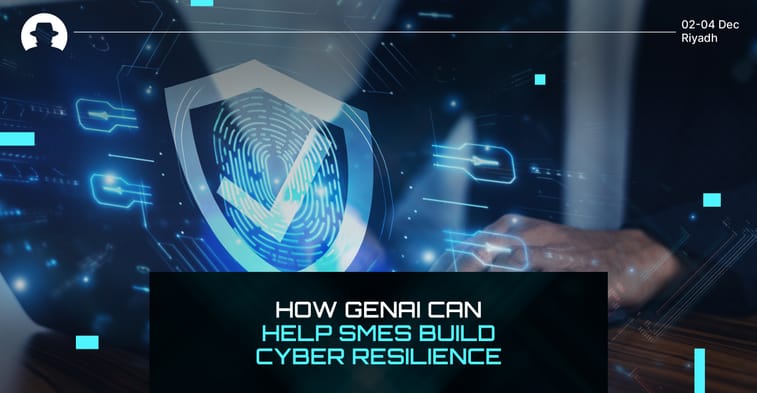
When privacy creates blind spots: the exploitation of privacy-first tech
New research reveals how privacy-first technologies are creating fraud blind spots, as AI-driven attacks scale faster than detection capabilities.
Read More
Small businesses are big targets for cybercriminals. Most people associate cybercrime with the hard-hitting headlines; billion-dollar breaches, multinational corporations scrambling to contain ransomware attacks, or data leaks at social media giants.
But for every newsworthy attack, many very different stories are playing out on a quieter stage: small and medium sized enterprises (SMEs), the lifeblood of economies all over the world, are targeted by criminal groups every single day. And often, they don’t have the resources they need to defend themselves.
It’s not that small businesses are doing anything wrong. It’s just that they’ve become the perfect target.
Because cybercriminals don’t need to hack the most secure, well-defended networks to make money. They want the path of least resistance. And small businesses offer exactly that – because many of them run on limited budgets, outdated systems, and a whole lot of trust.
Their employees might do more varied tasks than employees of larger organisations, but they don’t have constantly updated cybersecurity awareness programs to make sure they know how to protect the network every time they interact with it, on any device.
So to a threat actor, they’re low-hanging fruit: easier to breach, less likely to detect an attack, and usually slower to respond when an attacker gets in.
When we interviewed Abeer Khedr (CISO at National Bank of Egypt) last year, we asked her about the key threats that concerned her in 2024. She pointed out that according to the World Economic Forum outlook report, inequity between cyber resilient organisations and smaller, less resilient ones will continue to increase.
“This is a cause of concern because the less resilient companies could be our suppliers, our customers; it’s one ecosystem,” she said. “This should drive our efforts to increase awareness and support these companies on how to apply security measures and develop incident response capabilities to increase their cyber resilience.”
In spite of a growing understanding that SMEs are at risk (and pose a risk to larger organisations by extension), they remain critically under-served by the cybersecurity industry. The majority of tools available today are built for major corporations – with hefty price tags, steep learning curves, and dashboards filled with technical jargon that assumes you’ve got a cybersecurity team on standby. Most small business owners don’t. Many don’t even have an IT person.
They’re focused on running their bakery, their law firm, their non-profit. They need security that works quietly in the background, not something that requires hours of training and interpretation.
This gap between the risk SMEs face, and the protection that’s accessible to them, is where generative AI is starting to make a real difference.
At Black Hat MEA 2024, everyone was talking about it. We caught up with some of our speakers on the exhibition floor, and when we asked which new or emerging technology was most exciting to them at that moment in time, most of them mentioned GenAI.
Unlike traditional cybersecurity tools that flood users with raw alerts and technical noise, GenAI has the ability to understand context, simplify complexity, and even anticipate problems before they escalate. It can act like a virtual analyst, breaking down threats in human language, recommending action steps, and even executing basic responses automatically.
Instead of getting an incomprehensible warning about outbound traffic anomalies, a business owner might see: ‘A device in your network may be trying to send sensitive data out. We’ve isolated it for now, here’s what you should do next.’ That kind of clarity is empowering for businesses that simply wouldn’t have known what to do before – or might not have known they’d been breached at all.
What’s even more exciting is the emergence of smaller, more efficient AI models. Massive, enterprise-grade large language models (LLMs) power popular GenAI tools, but a growing number of lightweight alternatives are designed to be embedded directly into devices, applications, or small-scale security platforms. These models don’t require huge computing power or constant cloud access – which makes them ideal for the environments small businesses operate in. They’re fast, affordable, and focused, and they’re often trained on specific tasks like phishing detection, threat triage, or behavioral analysis.
It’s a shift that can push us closer to the democratisation of cybersecurity. Instead of requiring massive data centers and specialised teams, we’re starting to see smart, nimble AI baked into affordable tools that anyone can use. From intelligent firewalls to AI-powered browser extensions, these solutions are putting advanced defense capabilities in the hands of people who need them most; and importantly, the people who’ve historically been left behind.
No single technology is going to solve every problem for anyone. But for small businesses, GenAI (and this new wave of compact, purpose-built AI models) represents something we haven’t seen before: a real chance to close the cybersecurity gap.
To stay protected without needing to become an expert. To get ahead of threats without being buried in complexity.
Cybercriminals are evolving. But with GenAI, small businesses have a chance to evolve too.
Join the newsletter to receive the latest updates in your inbox.

New research reveals how privacy-first technologies are creating fraud blind spots, as AI-driven attacks scale faster than detection capabilities.
Read More
Cybersecurity founders share how Black Hat MEA helps them test ideas, prove product value, and grow their business.
Read More
Cybersecurity is now a leading barrier to financial innovation. New research explains why fraud, legacy systems and risk are slowing payments progress.
Read More